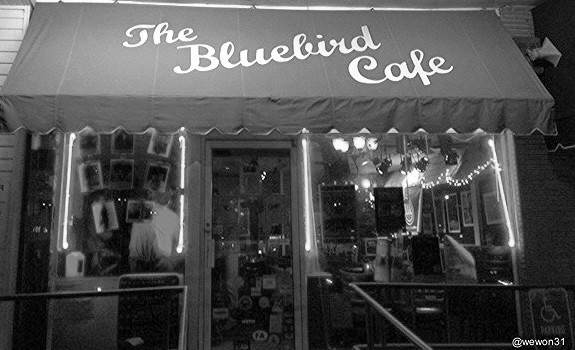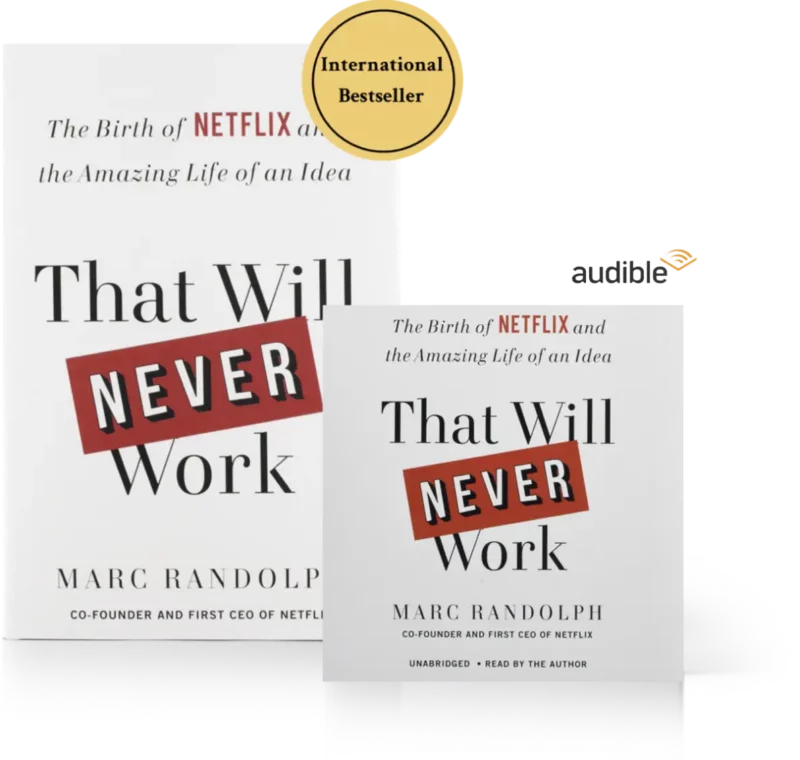Want to be a Songwriter? Don’t Move to Nashville. (Yet.)
You can start your business anywhere.

When I was a kid, it was common knowledge that if you wanted to be a songwriter, you had to move to Nashville. That’s where all the music publishers were, all the session musicians, all the open mic nights filled with industry execs at The Bluebird Café.
The same was true for actors. Want to make it big in the movies? Move to L.A., home of the studios and the agents, the casting calls and the walk-on extras.
Nowadays, when I talk to aspiring entrepreneurs, many of them feel the same way about Silicon Valley. “If I want to make it in the start-up world, I have to go to where the start-ups are,” they tell me. “Where else can I rub elbows with venture capitalists and set up mentorship coffee dates with startup veterans? Recruit engineers and buy office furniture for cheap?”
The answer? Almost anywhere.
In 2019, the truth is the same for actors, songwriters, and entrepreneurs:
You can start anywhere. And if you want to make it big, first you have to make it small.
Don’t move to L.A to become an actress — you’ll just be a waitress. Don’t drive to Nashville to become a country music star — you’ll just end up playing empty honky-tonks at two in the afternoon on a Tuesday.
And don’t move to Silicon Valley with a twenty-page business plan and a head full of ideas. You’ll just run out of money somewhere in San Mateo, sharing a two-bedroom apartment with six or seven other aspiring entrepreneurs.
It used to be true that to succeed in the creative class, you had to move immediately to where the action was. It was how you made connections, how you got auditions, how you found an audience and funding and some attention for your craft.
But not anymore. The world is more connected than ever before. Especially the tech world. High-speed internet is the norm, co-working spaces are popping up like wildfire, and coding bootcamps exist in pretty much every mid-size city in America. You can hire engineers, rent office space, and connect with customers from just about anywhere. And almost anywhere is cheaper than Silicon Valley.
I tell aspiring entrepreneurs all the time: Validate your idea locally. Get some experience under your belt. Prove your idea has legs where you are. Spend some time as a big fish in a small pond. Demonstrate that there’s a there there… there. Where you live.
Then, once you’ve established that your idea is a good one — and that entrepreneurship is something you have both passion and a talent for — move to where the entrepreneurs are.
It’s not that moving to Nashville or New York or Palo Alto is unnecessary. It’s just that most people pack their bags too soon. They don’t put in the hours in community theater, expanding their range. They don’t learn how to corral a rowdy dive bar with a perfect setlist. They don’t bomb in front of a crowd made up almost entirely of friends and family. Instead of screwing up in their hometown, they move straight to the big leagues, where they promptly strike out because they can’t hit big league pitching.
Besides, there’s something to be said for a hometown company. I should know. I’ve tried to found one… twice.
In 1997, when Reed Hastings and I came up with the idea for Netflix, we were carpooling together from our homes in Santa Cruz, “over the hill” into Sunnyvale. Like everyone else who lived in Santa Cruz and commuted into Silicon Valley for work, we hated that drive. So when we decided to move ahead with a company dedicated to DVDs by mail, I worked hard to find office space as close to Santa Cruz as possible.
For a while, the founding group met in a Hobee’s. Then in a Best Western conference room. And finally, in a former bank just off 17, ten minutes from downtown Santa Cruz.
I had a grand vision for Netflix to be a Santa Cruz company, one with the relaxed surfer ethos I saw everyday downtown. But slowly, like so many entrepreneurs, I let myself be convinced that we needed to move closer to where the action was, if we wanted to hire and retain top talent. We moved to Los Gatos in 2000, and the company has been there ever since.
Companies have centers of gravity. Where they are is part of their identity. I didn’t know, in the late 90s, that if I wanted Netflix to be a Santa Cruz company, I had to only hire people who wanted to live and work there. I think that some part of me didn’t think it was actually possible.
But fifteen years later, when I helped get a new startup called Looker off the ground, things were different. We found a beautiful space in downtown Santa Cruz and hired only locals and people willing to commute to us. It didn’t matter how much of a genius someone was — if they didn’t want to work in Santa Cruz, we didn’t want them to work for us.
You don’t have to stay in your hometown forever. Once we established Looker as a Santa Cruz company, it was OK, a few years later, to open a satellite office in San Francisco. And Netflix now has more employees in Los Angeles than in Los Gatos. It’s my hunch that as time goes on, more and more companies like Looker are going to find their ethos and identities — not to mention their addresses — outside of Silicon Valley.
And they’ll be able to find funding, too. V.C. funds like Revolution — profiled earlier this month on Equity, TechCrunch’s podcast about venture capital — have made it their entire mission to support startups outside the Silicon Valley bubble. And V.C. funding isn’t just expanding across the U.S. — it’s exploding in South America, having quadrupled since 2016.
As entrepreneurs, funding, and talent continues to spread, it will become increasingly possible to not only put off moving to a big tech hub like Silicon Valley, or Austin, or Seattle, but avoid it entirely.
There will always be people moving to Nashville, or Los Angeles, or Palo Alto, of course. But maybe not as many. And pretty soon, the whole world might be Music Row.
RECOMMENDED FOR YOU
Is This the Beginning of the End for the Urban Tech Center?
Podcast Episode 72
Is it a Culture Problem or a Hiring Problem?
October 25, 2022 • 38 min
